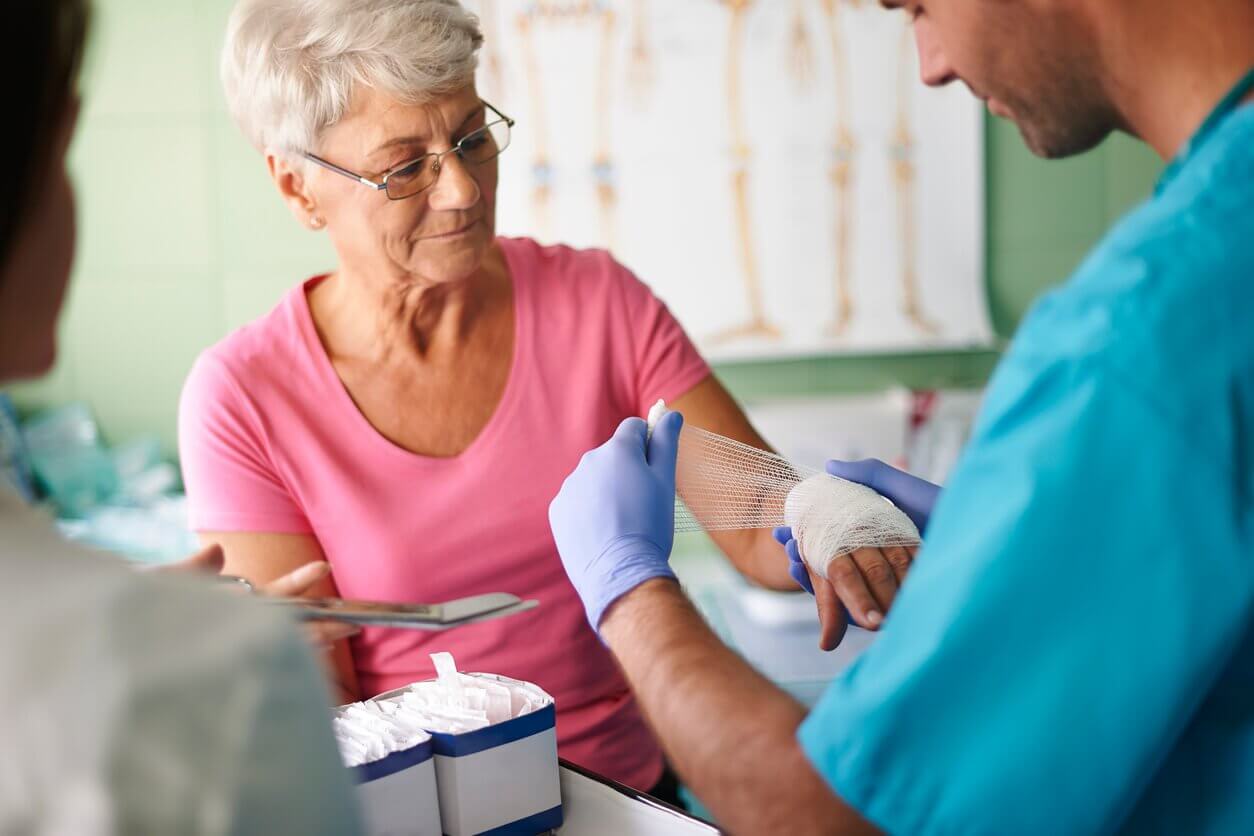Wound Care

Wound care is a simple yet time-consuming process. Whether you have gotten scraped or accidentally cut yourself with a knife, your body is going to take its time to heal that wound. Wound healing occurs in different stages and every stage needs some sort of care to be executed optimally. The certified physicians at specific clinics are experienced in wound care. Whether your wound is a simple abrasion or infected, we will deliver you the right treatment plan and education to heal your wound.
Not all locations provide wound care. Click here to find your closest clinic and the services they offer.
STAGES OF WOUND CARE
Wounds are a natural part of life. Whether you're dealing with a paper cut or a more serious injury, the healing process is generally the same. Once the bleeding has stopped, your body will begin to repair the damage by forming new tissue and cells. This process can be divided into four distinct stages: hemostasis, inflammation, proliferation, and maturation. Each stage is marked by specific changes that occur in your wound.
During the hemostasis stage, your body works to seal off the wound and stop the bleeding. This is achieved through a process known as clotting. Clotting factors in your blood come together to form a barrier that helps to close off the wound and prevent further blood loss. This stage is susceptible to infections.
The inflammation stage is characterized by redness, swelling, and pain. This is your body's way of protecting the wound from further damage and bacteria. In this stage, the worn-out tissue is removed and tissue growing cells start immigrating to the wound site. Infection at this stage can cause delayed wound healing.
The next stage, proliferation, is when new tissue and cells begin to form. This tissue is not as strong as the original, but it works to close off the wound and help it heal. The new tissue consists of collagen fiber, epithelial cells, and keratin. During proliferation, care must be taken, and the scar and tissue should not be subjected to trauma.
Finally, the maturation stage is when your wound starts to fade away. The new tissue becomes stronger and more elastic, eventually returning to its original state. The strength is increased by replacing one type of collagen with another type and adding more layers of cells. This process completes within months.
Although every stage of wound healing needs proper care, wound care becomes imperative in the early stages. If not dealt with properly, your wound might bleed too much, get infected, or even cause systematic diseases like sepsis.
Our therapists are trained in the proper healing of wounds, as well as rehabilitation after an injury. Request an appointment online or visit us at your nearest clinic.






































